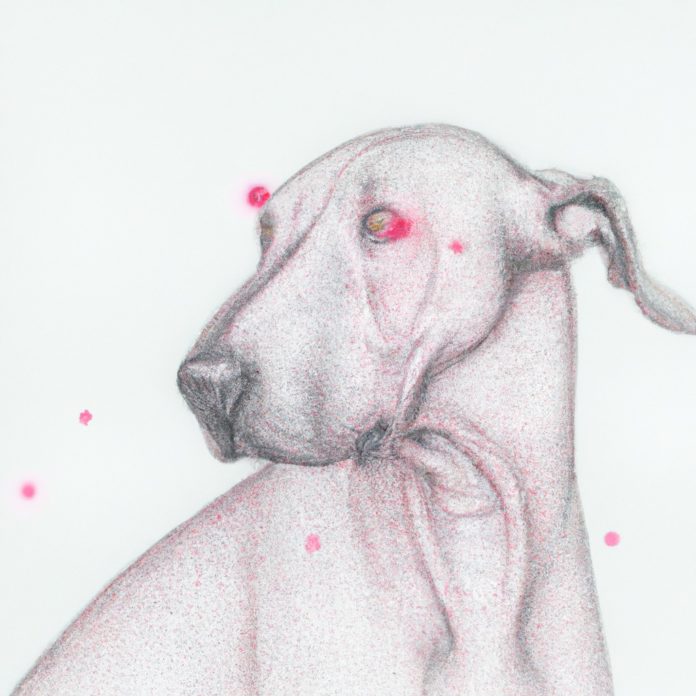Dear VetBabble: Why is My Dog Losing Hair and What are These Red Circles on His Skin?
One concerned pet owner writes: “My dog’s back is shedding to a point of baldness and I found some red circle things. Should I be worried?”
As a caring and responsible veterinarian, I encourage you to be concerned enough to take your dog to the vet for a proper diagnosis and appropriate treatment. While it’s natural to feel worried, try not to be overly anxious, as the issue might be caused by a mite or ringworm infection that can be treated. It’s important not to delay visiting your vet so they can assess the situation as soon as possible.
In this article, we’ll discuss three possible causes of hair loss and skin lesions in dogs, including mange, ringworm, and other types of alopecia. We’ll also talk about when to worry about lumps and bumps.
1. Mange: Mites and Skin Infections
Mange is a skin condition caused by microscopic mites that infest your dog’s skin. There are two main types of mange: Demodectic mange and Sarcoptic mange. Both can cause hair loss, itching, and skin lesions.
Demodectic mange, also called “Demodex,” is usually less severe and can result from mites that naturally reside on your dog’s skin. However, in some dogs – especially those with compromised immune systems – the mite population can grow out of control, leading to hair loss and skin issues. Sarcoptic mange, also known as “scabies,” is more severe and contagious. It results from mites that burrow into your dog’s skin, leading to intense itching, hair loss, and skin damage.
If you suspect your dog might have mange, it is important to visit your veterinarian as soon as possible. For an in-depth look at mange and how to diagnose it, refer to our article: Does My Dog Have Mange?
2. Ringworm: A Fungal Infection
Ringworm is a common fungal infection that affects dogs, cats, and even humans. Despite its name, ringworm is not caused by a worm, but rather by a fungus that infects the outer layer of your pet’s skin. Symptoms include round, hairless lesions that are often red or inflamed. Your pet may also experience itchiness and skin scaling.
Animals with ringworm require treatment, as the infection can spread to other pets and humans in the household. Consult your vet if you believe your dog has ringworm. They will likely prescribe an antifungal medication to eliminate the infection. For more information about ringworm in pets, check out our articles: Ringworm in Dogs and Ringworm in Cats – Learn the Signs and How to Treat.
3. Alopecia: Hair Loss and Other Causes
Hair loss in dogs, or “alopecia,” can result from various factors, such as allergies, hormonal imbalances, infections, or even stress. If your dog is experiencing significant hair loss, it is essential to visit your vet for a thorough examination and diagnosis. Together, you can develop a tailored treatment plan to address your pet’s specific condition.
To learn more about hair loss in dogs and its underlying causes, as well as potential treatment options, please read our informative article: Why is my dog’s hair falling out? Alopecia, allergies and other causes hair loss in dogs.
When to Worry About Lumps and Bumps
Not all skin issues are cause for alarm, but it’s crucial to be vigilant about your pet’s health. If you notice any unusual lumps, bumps, or skin lesions, schedule an appointment with your vet for a thorough evaluation. While many conditions can be treated easily with prompt care, some may indicate more serious health problems that require immediate attention.
To help determine when to be concerned about your pet’s skin issues, consult our guide: Lumps and Bumps: When to Worry.
In conclusion, it’s important to pay close attention to your dog’s skin and take action if you notice any hair loss or unusual skin lesions. While many conditions can be easily treated, early diagnosis and treatment are crucial for ensuring your pet’s well-being. Remember to consult your veterinarian for any concerns you may have about your dog’s health.









